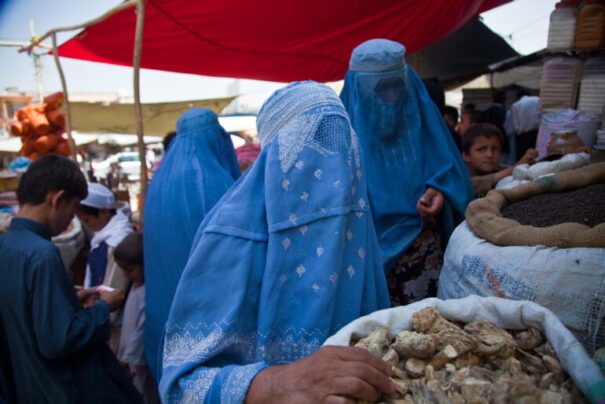
Since the Taliban returned to power two and a half years ago, the regime has persisted in finding ways to curtail women’s rights and lives, with its most recent ban on women contacting radio stations. The Taliban has issued over 100 edicts to limit and ban women and girls’ access to employment, education, travel, and their ability to go to parks, shops, bathhouses, and most public spaces. Afghan women and girls are essentially confined to their homes.
In February, the Taliban prohibited women from calling into radio stations in Khost province to publicly express their opinions. In another effort, the Taliban governor for Kandahar banned “photos and videos of all living beings.” Notably, during their first regime in the late 1990s, the Taliban was notorious for prohibiting photography and videography.
In the southeast province of Khost, the de facto authorities announced through an official statement that women are prohibited from contacting local radio and television channels. Local media outlets were instructed not to accept phone calls from girls, according to the Afghanistan Journalists Center (AFJC).
Afghan media, which has faced significant attacks under Taliban rule, used to serve as a vital platform for education, information, and the opportunity to critique political and social issues. Some major media outlets stood as a source of independent information and offered several popular social and educational programs. The educational programs were particularly crucial to Afghans living in rural areas.
A woman from Khost province who spoke with Radio Azadi said that “the prohibition of girls contacting media outlets is a move to slowly erase women from society.” In August of last year, women were banned from appearing on broadcasts in Southern Afghanistan as well.
The latest move is justified as a way of preventing the spread of “immorality,” said regional security head, Abdul Rashid Omari, in a letter he sent to the Information and Culture department of the Taliban. Omari claimed that private media outlets were engaging in “illegitimate contacts” with girls through social and educational programs.
Local media stations have also been warned that they could be “summoned and prosecuted” for broadcasting educational content without permission. Samia Walizadeh, the head of Communications for the Afghanistan Journalists Center, explained that this edict is a violation of media laws and the right for citizens to have free access to information. AFCJ is demanding for the order to be repealed.
Educational and social programs via radio and media have become one of the last places where women and girls can access education and engage with others in their communities. Since the Taliban’s return to power, Afghanistan is the only country in the world where girls are prohibited from attending school past the sixth grade.
The Feminist Majority Foundation is participating in a campaign to stop gender apartheid in Afghanistan, actively advocating for the human rights of Afghan women and girls. Afghan women and girls have persisted in opposing this rule of gender apartheid, along with a coalition of international organizations and individuals concerned with this outrageous ban and restriction of human rights. This coalition is urging the UN and countries around the world to not recognize or legitimize the Taliban until its horrific treatment of women ends and to classify gender apartheid as an international crime against humanity. So far, no country has recognized this brutal regime.
Gender apartheid is a serious violation of human rights. Normalizing gender apartheid not only perpetuates discrimination and persecution on the basis of gender, it also escalates the broader struggle against human rights violations.
Source:
RFE/RL 02/18/2024; 8AM Media 02/18/2024